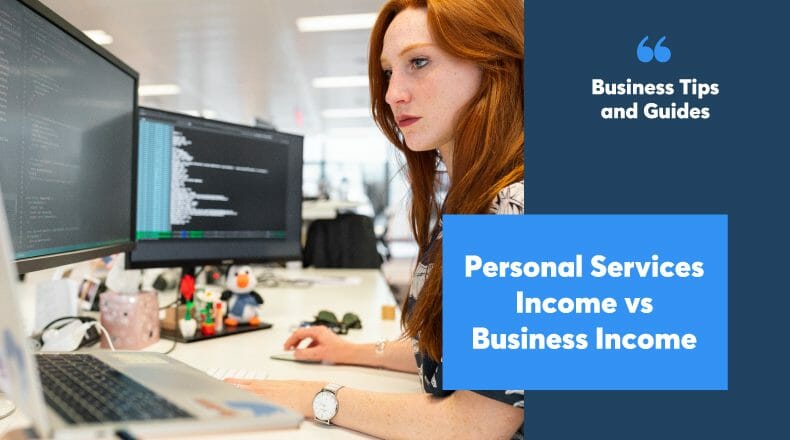Personal Services Income vs Business income – what’s the difference and what personal services income deductions can I claim? To explain this, we have to first dive into something called ‘substance over form’. Why? Well, one of the most fundamental cornerstones of Australian taxation law is that of ‘substance over form’ – a concept that seeks to treat any particular arrangement based on the true nature of the arrangement, regardless of how it is labelled, (aka If it looks like a cat and purrs like a cat, it’s a cat, not a hamster).
Over the years, many sections of legislation have come into force to formalise the process of classifying arrangements correctly – all with a view to ensuring that the tax treatment of such arrangements reflects the substance of the arrangement rather than the form. One such area of legislation is Personal Services Income (PSI).
Although the PSI rules have been around for some time, many small businesses are either unaware of the rules or do not fully understand Personal Services Income vs Business income, and as a result it’s common for PSI to be treated incorrectly.
So, in this post we’re going to take a look at Personal Services Income vs Business Income and the tests / rules that apply to make sure you report the relevant income correctly to the ATO.
Let’s get started by taking a look at the differences between Personal Services Income and Business income.
What is Business Income?
Business income is earned income realised from an entity’s operations. For tax purposes, business income is treated as ordinary income. Business expenses and losses are (usually) then offset against business income.
What is Personal Services Income (PSI)?
If you’re selling your specific skill set, knowledge and your time as opposed to a physical product, then you’re earning PSI.
From financial professionals to engineers you can receive PSI in almost any industry, trade, or profession. Income is classified as PSI when more than 50% of the consideration (payment) you receive for a particular contract or transaction is for your labour, skills, or expertise.
PSI does not affect you if you’re an employee receiving only salaries and wages. But, if you are operating through a company, partnership, or trust, and are an employee of that entity then the PSI rules may still apply.
There are special tax rules around PSI to prevent people from reducing or deferring their income tax by diverting income they’ve received from their personal services through companies, partnerships, or trusts – so it’s important to get the classification right.
PSI Tests
A series of tests are used to determine whether an arrangement is in substance an employment-type arrangement (and therefore subject to the PSI rules) or if the income is generated by a Personal Services Business (and therefore the PSI rules do not apply).
The tests must be applied each year there is PSI and, if there are multiple people in the business earning PSI, the tests are applied in respect of each individual.
There are five different types of PSI tests:
- Results Test
- The 80% Rule
- Unrelated Clients Test
- Employment Test
- Business Premises Test
See our previous blog on What is Personal Services Income for a deeper dive on these tests and what’s involved.
PSI Test Outcomes
If you pass the results test, then the PSI rules do not apply. If you fail the results test, then you must pass the 80% rule and at least one of the other three tests.
Personal Services Income Deductions – What can I claim?
If the PSI rules apply, they will affect how you report income earned to the ATO and the personal services income deductions you can claim. You must complete certain questions in your tax return for PSI.
Likely Personal services income deductions include:
- The cost of gaining work, such as advertising, tenders, and quotes
- Registration and licencing fees
- Account-keeping fees, including bank fees
- Some insurance costs, including public liability and professional indemnity insurance fees
- Salary or wages and super contributions for an employee engaged at arm’s length (not an associate)
- Reasonable amounts paid to an associate for principal work
- A portion of home office expenses, such as heating, lighting, phone, and internet. Do not claim rent, mortgage interest, rates, or land taxes
- You may be eligible for other deductions depending on what your business is and your contracts.
If you’re a sole trader, you can’t claim certain deductions against your PSI and you will need to meet certain tax return obligations when the PSI rules apply. You can however still claim PSI deductions for expenses for earning other income according to the normal tax rules.
If you operate through a company, partnership or trust and the PSI rules apply the deductions you can claim only apply to income that is classed as PSI. If you earn any other income, you can (like the above) still claim deductions for expenses in earning other income according to normal tax rules.
If you received both PSI and other income, you have to allocate your expenses between each category of income. Where the PSI has been generated by more than one individual, the deductions relating to that PSI must be allocated to the individuals who worked for it.
Thriday is a new accounting software that automates banking, accounting and tax. Thriday effortlessly segregates business and personal income, ensuring accurate financial tracking. This feature simplifies tax management, providing clarity and structure for small business owners balancing personal and business finances.
Need help, read on
Classifying PSI and reporting it accurately can be difficult and time consuming, but it’s important to get right.
If you need help, the team at POP Business are experts at determining if the PSI rules apply to you, how to meet your tax and PAYG Withholding obligations (if the PSI rules apply), whether you need to consider any business structuring issues, and much more. To find out how we can help contact us today on 1300 180 630.



